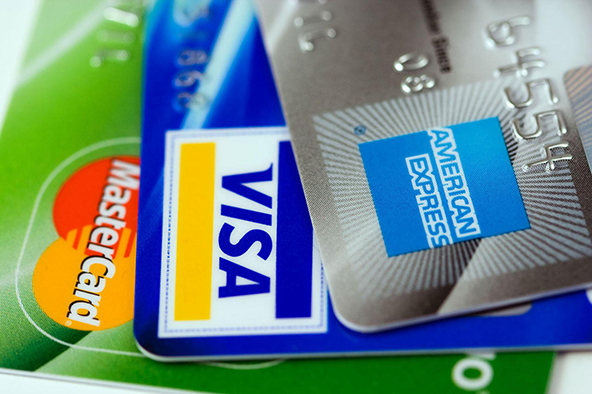Merchant Account Qualifications and Requirements

Industry regulations require processors to ensure that merchant account applicants meet certain qualifications, before processing their paperwork.
All applicants must comply with the following requirements:
- Be legally registered within the U.S. Individuals are not allowed to set up?ácredit card processing services. Foreign organizations are also excluded. Applicants must be either legally incorporated as businesses or they must be registered with the local municipality and obtain a “Doing Business As” (DBA) name.
- Have a physical address within the U.S. Applicants must have a physical office that processors can inspect. Home-based businesses are acceptable.
- Have a U.S. bank account. The bank account into which you will have your funds deposited must be opened with a U.S. bank.
Provided your organization is qualified to apply for a merchant account, there are a number of requirements that will still need to be met and, to understand why the process is so stringent, you need to understand exactly what is it that you are applying for.
Merchant account is a form of line of credit that a processing bank (member of Visa and MasterCard) extends to the merchant. When you accept a card payment, your processor will “acquire” it, usually at the end of the day, together with your other transactions, and will automatically deposit the payment amount, after subtracting the interchange fee and its own processing cost, into your designated checking account. At the same time it will submit a request for payment to your customer’s card issuing bank. Your processing bank will pay you before it gets paid. Moreover, even after the processor gets paid, your customer has six months to dispute the transaction and, if the dispute is valid, the transaction must be reversed (charged back). If you have gone out of business or cannot cover the chargeback amount, your processor is the one who will take the hit. That is the reason why the application process is set up to establish the credit worthiness of both the applicant organization and its principals. Following is a list of requirements that you will have to meet and documents you will have to provide:
- Application form. The application form will collect information about both your business and yourself, including address (business and personal), social security number, Tax ID (if applicable), phone number, email address, web address, bank account info, etc.
- Personal guarantee (for-profit organizations only). A personal guarantee is required from the principals of all privately held businesses. Sole proprietorships often do not require a personal guaranty. Non-profits and public companies are not required to provide a personal guarantee.
- Articles of Incorporation. Unless you are a sole proprietor, you will have to provide a proof that it has been legally incorporated.
- Business license. If your business activity is regulated and requires a license, either a federal or a state one, you will need to provide it.
- Business financial statements. Unless your organization has been formed recently, you will have to provide its financial statements (typically it is required that you produce financial statements for the two years preceding the application date).
- Personal financial statements. Typically requested in place of business financial statements, personal financials may also be requested in addition to them. Personal tax returns for the latest two years are typically sufficient.
- Business and personal credit history. Processing banks will check your business’ Dunn & Bradstreet credit file (if applicable). The businesses’ principals will also have their credit files reviewed.
- Business profile and marketing materials. Merchants are required to provide a description of all products and services they offer, as well as copies of all relevant marketing materials. The product type helps processing banks estimate the business’ risk type. Certain business types of products and services will put the applicant business on the restricted merchant list while others may place it in the prohibited list.
- Processing statements. If you are currently accepting credit cards and are looking for a new service, you will be asked to produce your three latest processing statements.
- Voided check. You will need to provide a voided copy of a check for the bank account into which you will want your money to be deposited. The check must have your “Doing Business As” (DBA) name pre-printed on it. If you have not yet received your permanent checks, you can substitute with a signed bank letter stating your account details.
- Compliance with the Payment Card Industry (PCI) Data Security Standards (DSS). Compliance with the PCI DSS will ensure that customer account information is adequately protected.
- Site inspection. The processor may conduct a site inspection of the applicant business’ offices and warehouses (when applicable). Exceptions to the site inspection requirement typically include:
- Dentists.
- Health practitioners.
- Hospitals.
- Optometrists.
- Physicians.
- Colleges and universities.
- Publicly held companies.
- Business policies. The merchant’s billing, shipping and return policies will be reviewed to ensure compliance with industry regulations. A representative of the processing bank may also place and then return an order with the merchant, as an additional inspection step.
- Other requirements. In case fulfillment of orders is handled by a third party, information should also be provided about this establishment and a site inspection will be conducted at its premises as well. The Internet Service Provider may also have its physical controls inspected. Other requirements may also need to be met.
Image credit: Flickyourwrist.blogspot.com.


I am the manager for a fitness equipment ecommerce biz based in barcelona spain. the principals are in Spain. We have opened a US corporation, US bank account and US address (Law Firm). How do I get principals from Barcelona qualified personally speaking?